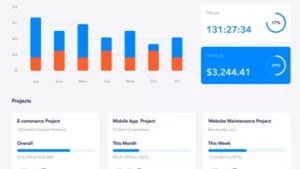A recent survey of “generation Z” (16 to 25 years old) people has produced a wide variety of responses to questions about employment. Results that stood out, however, included widespread anxiety about future work prospects and fear of financial insecurity. A need for face-to-face feedback about their work and regular personal contact with co-workers were also among the significant findings.
The survey, conducted by management consultants Kronos, covered about 3400 people in 12 countries.
Why do they work?
There was a fair amount of pragmatism in the responses here. The most common reasons were a fear of being broke (mentioned by 56%) and to have money for personal activities (48%). A job was more often seen as just a way to make money than a career building opportunity.
Those results suggest that money is important to Gen Z employees. It is, but only up to a point. More than half (54%) said it wouldn’t motivate them to work harder or stay with an employer longer. Only about 16% said fringe benefits were a motivator, although many more believed that they mattered more to older employees.
What do they expect from managers and workplaces?
The most significant finding here was a strong preference to receive face-to-face feedback and for personal contact with others generally. Three-quarters preferred to receive feedback from managers in person. Half preferred a work environment where they interacted face-to-face with their colleagues – perhaps surprising given the stereotypes of social media activity, selfies, etc often attributed to this generation.
Attitudes to workload varied somewhat. Almost two-thirds (62%) said they were willing to work longer hours very often in order to advance their career. On the other hand, one-third said they would never tolerate being told to go to work when they didn’t want to.
The most frequently-mentioned gripes were about unsupportive managers, dysfunctional teams, having no say in their work schedule and being unable to access leave entitlements when they wanted to. However, it would be hard to argue that any of those issues are unique to a single generation.
Almost 40% said that working for an organisation that does “meaningful work” is the most important issue for them. About one-quarter added that they were wary of organisations that either lacked diversity or didn’t provide evidence of “giving back” to the community.
Lack of confidence holding them back?
References to a “sense of entitlement” or “expecting everything now” are frequently adopted when talking about Generation Z, but some findings of this survey suggest otherwise.
About one-third said that personal anxiety was a barrier to their success at the workplace. This was more common among women than men. A similar percentage listed lack of experience or professional connections as a career barrier. About 20% listed lack of motivation or drive, and low self-esteem as barriers.
What the results mean for HR practitioners
There are different schools of thought when it comes to analysing different generations of employees in the workplace. Some commentators claim there are significant differences between generations and different management styles and employment value propositions for each one should apply. Others argue that managers and HR practitioners should identify what matters to each individual employee regardless of his/her age and focus on addressing nurturing those issues.
If one is to draw any general conclusions about Generation Z from this study, they might be:
– Face-to-face feedback and encouraging a sense of belonging at work are important.
– If anxiety or lack of confidence appears to be a problem for an individual, devise a strategy that helps him/her to overcome it. Mentoring by an older employee can often be very helpful.
– Be able to demonstrate how both your organisation generally and the employee’s individual job make a positive contribution to the general community. Use this value proposition in recruitment processes.
This article was written by Mike Toten and first published on hradvanceprofessional.com.au


